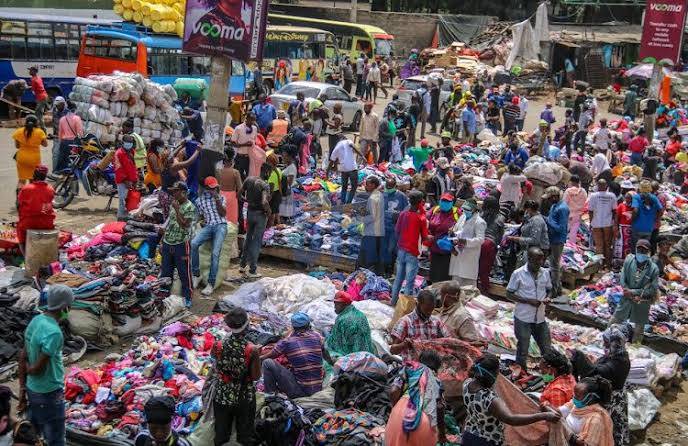
The proposed mitumba ban is yet again emerging as a political hot potato as the government moves to stop the imports.
The Ministry of Trade has proposed halting the import of the second-hand clothes in an attempt to protect the domestic cotton, textile and apparel (CTA) sector.
Through the National Cotton, Textile and Apparel Policy of 2024, the government is seeking to revitalise the once-thriving cotton industry in Kenya.
The policy aims to increase cotton production, boost value-addition, create employment and skills development, enhance market access, promote sustainability, innovation, research and development in the CTA sector.
In doing this, the policy provides measures that will tackle what it terms structural challenges, which have stunted the sector for years, by providing an enabling environment than enhances value chain growth from farm to fashion.
According to the State Department for Industry, the policy aligns with the Fourth Medium Plan of Kenya’s Vision 2030 and the Bottom-Up Economic Transformation Agenda, which under agriculture lists cotton as a strategic crop.
However, the Kenya Kwanza Manifesto had acknowledged that “simplistic interventions, such as banning mitumba” would not be a solution, if raw materials such as fabric continued being expensive.
In this regard, the manifesto recommended competitive production and conversion of cotton into fabric, in particular growing BT cotton and developing a viable cotton raw material supply chain
The initiative to promote cotton farming and ginning, textile and apparel manufacturing in Kenya and export will correspondingly mean stopping imports of the cheaper mitumba, which has historically triggered political reactions.
Trade CS Lee Kinyanjui on Tuesday said Kenya cannot succeed is developing a sustainable textile industry, while still being a top destination of second-hand clothes.
He was speaking during a media breakfast on the Development of a National Cotton, Textile and Apparel Policy.
The situation has been complicated by the new Trump tariffs, which have heavily hit the textile industry.
Mitumba imports is a huge business in the country, with Kenya as the biggest importer of second-hand clothes in Africa.
Kenya imported 866,000 tonnes of second-hand clothes between 2019 and 2023, Kenya National Bureau of Statistics data shows.
The imports were valued at Sh95.2 billion and mainly from China and the US.
According to KNBS, the mitumba imports grew by 11.5 per cent to 198,000 metric tonnes, valued at Sh26.3 billion in 2023.
Kinyanjui acknowledged the political nature of the ban.
“Today if you make a pronouncement that you want to ban mitumba in Kenya, you know that is a huge political statement,” the CS said.
“But the truth is that any country where the textile industry has thrived, they have banned mitumba.”
He said the mitumba ban is a political question that Kenyans need to face, if indeed they want to grow the textile industry.
He added that the ban should also consider pricing, whereby the produced clothes are almost at par with the mitumba.
“It is not that Kenyans are in love with mitumba, it is because of the costing aspect,” he said.
Countries that have banned mitumba include Rwanda, Uganda and Ethiopia.
The Mitumba Consortium Association of Kenya has opposed the banning of second-hand clothing imports, arguing the move would negatively impact the livelihoods of millions of Kenyans involved in the trade.
In November 2022, the then Trade CS Moses Kuria was forced to retract comments that he would ban mitumba after backlash.
He ‘clarified’ that he meant he would increase consumption of locally made clothes and thus reduce demand on the second-hand clothes.
At the height of 2022 campaigns, ODM leader Raila Odinga came under criticism for proposing a mitumba ban, particularly saying that the clothes are from the “dead”.
Kenya had in August 2020 temporarily suspended mitumba imports on the basis of ensuring Covid-19 protocols after pressure from mitumba traders.










